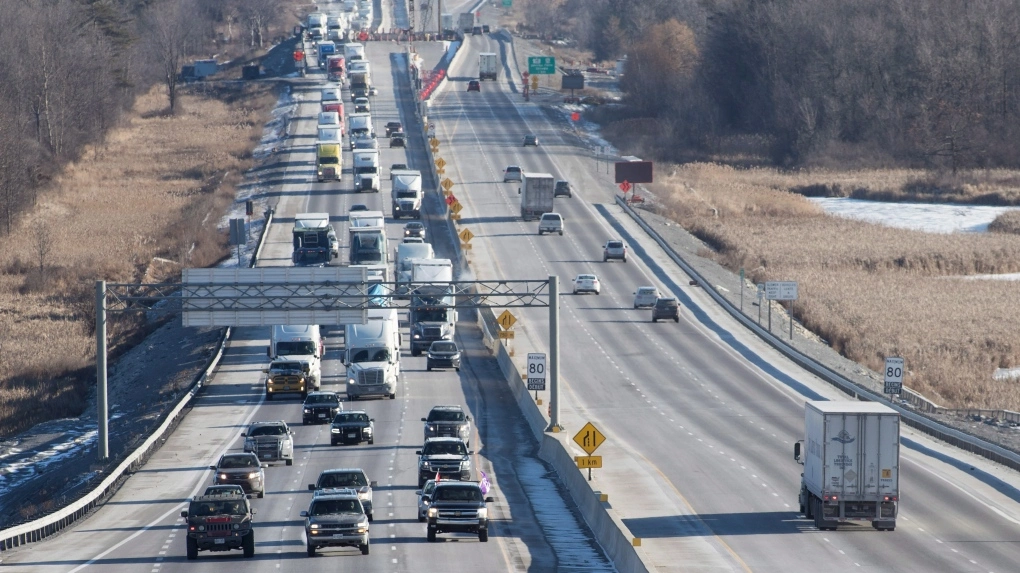Canada to announce all new cars must be zero emissions by 2035
Canada to announce all new cars must be zero emissions by 2035

Canada to announce all new cars must be zero emissions by 2035

Canada to announce all new cars must be zero emissions by 2035

Canada to announce all new cars must be zero emissions by 2035

I hope the gov (fed, prov, muni) are prepared to invest big time in infrastructure.
If the Conservatives win the next election they'll cancel all positive climate action because that's what the Republicans would do.
As much as I prefer the market-based bottom-up solutions provided by carbon tax, the advantage of green infrastructure is that it's sticky.
The conservatives can destroy the carbon tax with the stroke of a pen. They won't destroy the wind generators and the charging stations that have already been fully implemented.
They can officially do it. However the out of power liberals can just announce next time they get in power they will just restore the laws to where they were. This might allow ICEs to exist until 2038 or sometime (I don't know what Canada's election cycles are so I picked a random year), but eventually the ban will come down hard and the liberals won't give the industry any time to adjust - they will just ban all sales of ICEs effective when the law is signed. As such all the future changes in the law does is specify when the last ICE assembly plant shuts down - auto makers will still plan on all new vehicles being EVs (either only or as a popular option), then they keep producing ICEs until the law stops it, but they are ready for the day.
The smart thing for auto makers to do is to instead look for the limits and find a compromise. ICEs do have some advantages over EVs that are compelling in specific things (the energy in a liter of fuel is a big deal). Focus the conservatives on adding an exception for a few remote or long distance travel situations and they can get an exception the liberals won't repeal.
Canadian federal election cycles are 4 years, but the PM can call them sooner.
Personally, I think the goal should be finding agreement amongst all political parties now on reduction/elimination targets.
I think the goal should be finding agreement amongst all political parties now
You won't get that. The right-wing in Canada, by virtue of following the path trodden by the US, has made compromise a dirty word.
Case in point: carbon taxes were the right-wing solution: it put the cost on the demand side, didn't require industry to do anything or be regulated, it just put a mild thumb on the demand side of the equation, and even returned revenue to the government which could be used for refunds or tax breaks. The left-wing solution would have been nationalization and regulation, but the Conservatives screamed about that and how we needed a market-based solution instead.
But because the Liberals did that same market-based solution, the Conservatives have to rail against it because...blue team good common sense socialism far left woke whaaaaargarbl.
Put it this way: the Liberals could go full US Second Amendment, cancel gun registration and tracking and give everyone over 18 a coupon for a free handgun and the Conservatives would still scream, and their base would do the same. This isn't new, and it's because tribalism is stronger than ideology, and all you need to do to get someone to agree with a "red team" idea is somehow convince them that it's a blue team idea.
This is what makes the political Right so infuriating: they could pipe the fuck down and agree to present a unified front on things that would make everything better, but they won't because they'd rather score cheap political points, instead.
Wow, you've given me a lot to think about, and I appreciate you sharing your insights.
I agree with your comments about the political Right, and that tribalism is generally stronger than critical thinking in most people (and - alarmingly - this trend appears to be increasing).
It isn't increasing per se, it's just being more ruthlessly exploited.
We've come out of a weird 50-70 period in history where the normal political consensus was...not normal...and all sides of the political quadrangle have been trying to figure out where they stand, economically and politically. There's actually been a lot more favour-trading and ideological drift as liberals, conservatives, anarchists and authoritarians all tried to figure out where they were on the map. What we've seen since the fall of the USSR and the neoliberal failure to address the 2008 financial crisis is just a kind of regression to the mean, where our "tribes" felt more secure staking out territory and establishing political shibboleths.
But yeah, the Right has been particularly unpleasant about it. In their defense, this is because the early-90s "triangulation" movement on the Left kind of cut the Right off at the knees--you could be a big-business douchebag and not care about what people smoked or slept with--and forced the powerbrokers on the Right, if they wanted to survive, to stake out illiberalism and nationalism as their safe space.
finding agreement amongst all political parties
You're gonna love the next minority government. It'll either be short or progressive.
I hope the gov (fed, prov, muni) are prepared to invest big time in infrastructure.
That needs to be on the mandate anyway.